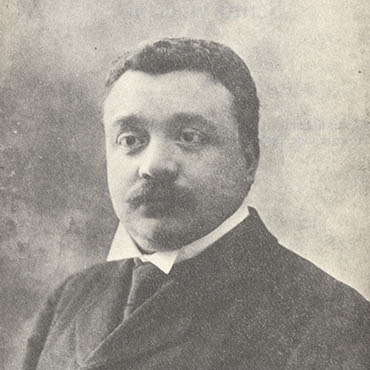Solmi was born in 1874 at Finale Emilia, in the province of Modena, the third of twelve siblings. He attended the classical high school in Modena and then enrolled at the Istituto di studi superiori in Florence, on the advice of his teacher Severino Ferrari, poet and philologist, pupil of Giosuè Carducci and friend of Giovanni Pascoli, who long before had also attended the Institute. In 1897, after following courses on philology, palaeography and philosophy, Solmi graduated with Guido Mazzoni with a dissertation on Leonardo da Vinci. In Florence his fellow students had included Cesare Battisti and Gaetano Salvemini, and his teachers included lecturers from the School of philology in Florence and personalities such as Felice Tocco and Pasquale Villari: ample traces of that world would remain in his future work. In 1898 he studied literature in Bologna with Carducci. After a period of high-school teaching he obtained a qualification to teach in the history of philosophy at the University of Turin, where later he became a temporary professor. Later on, he was employed by the University of Pavia as a full professor.
His intense activity as a scholar and populariser was concentrated mainly on Leonardo da Vinci, on his manuscripts and on an original work on the sources, a work that aimed at reconstructing his biography and his works. Antonio Banfi, who was a pupil of Solmi, went as far as saying that “Leonardo studies in a historical sand critical sense” began precisely with Solmi, while Sigmund Freud, who used Solmi’s biography of Leonardo as the basis for writing Leonardo da Vinci and a memory of his childhood, described him as the one person able to investigate the figure of Leonardo without excluding the psychological aspects. Without a doubt, his research of the sources that had led Leonardo to his original reinterpretation, as well as his studies of unpublished work, made Solmi a paragon of Leonardo studies, regardless of the results that have not always been considered consistent with the methodology. But just as important is Solmi’s contribution to studies on Gioberti that occupied the last part of his life, with the publication of the unpublished works of Vincenzo Gioberti preserved at the National Library in Turin. On paper Edmondo Solmi could seem an ideal collaborator for the national edition of Galileo and he himself said he was very happy to take part in the project, when Piero Barbèra acted as an intermediary with Antonio Favaro, who for some time had been looking for help in the compilation of Vol. 20 with the indexes.
However, things did not go as expected. Although Solmi applied himself to the task that had been assigned to him as far back as 1901, Favaro was not at all happy with the result and made major changes in the definitive version, giving rise to a series of mutual recriminations that came to end only on the printing of the volume. The published indexes did not look like what had been given by Solmi, although, as an acknowledgment of his seven years of work, he was, anyway, rewarded by a mention in the Avvertimento: “we have also benefited from the help of Prof. Edmondo Solmi, who, given the nature of the studies that have made his name well-known, seemed to us the best person to help in the attempt to overcome the serious difficulties with which this taxing work seemed to be fraught”. Edmondo Solmi died prematurely of typhoid in 1912 at Spilamberto, in the province of Modena, at his holiday home.


